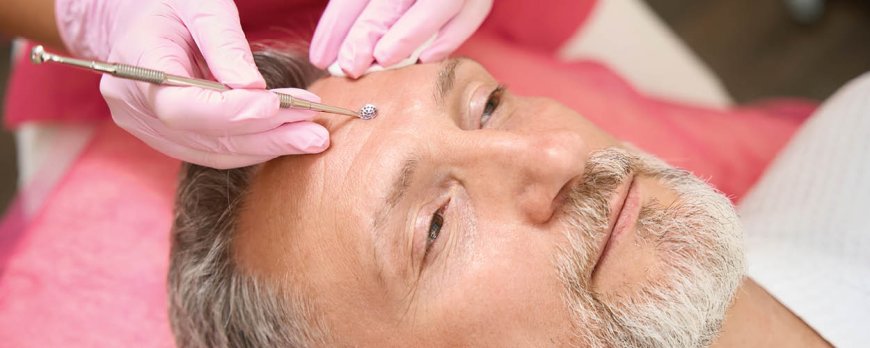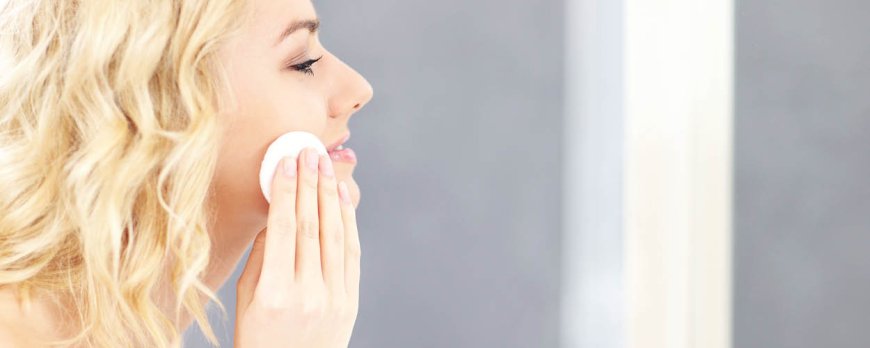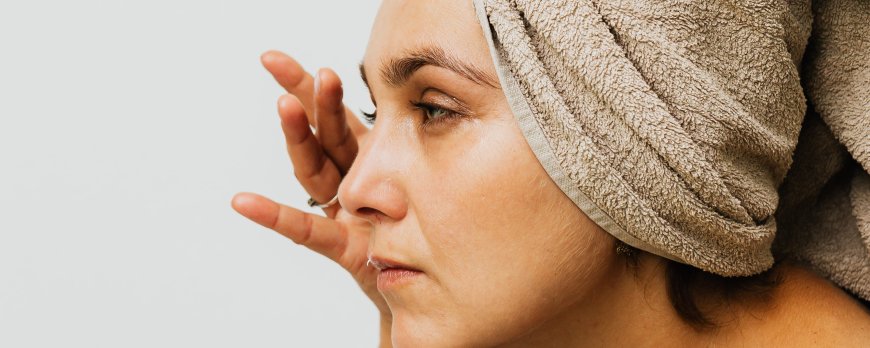At what age acne stops?
Ever wondered 'At what age acne stops?' Discover the facts on acne and age, and learn how to keep your skin clear at any time of life.

At what age does acne stop?
Acne is a common skin condition that affects people of all ages, but at what age does it typically stop?
Key Takeaways:
- Teenage acne usually resolves by the early 20s.
- Acne can persist into adulthood, particularly in women.
- Hormonal changes and chronic stress are common causes of adult acne.
- The age at which acne stops varies for each individual.
- 26% of women aged 31-40 and 12% of women aged 41-50 have clinical acne.
- Treatment options for acne include topical medications, oral medications, hormonal therapies, and light therapies.
- Consulting with a dermatologist is important to determine the most appropriate treatment.
- Proper treatment is necessary to prevent permanent acne scars.
Acne is a common skin condition that affects people of all ages. It is most prevalent during the teenage years, with teenage acne usually resolving by the early 20s. However, acne can also persist into adulthood, particularly in women. Adult acne is often caused by hormonal changes and chronic stress. The exact age at which acne stops varies for each individual. Some people may continue to experience acne into their 40s and 50s, with studies showing that 26% of women aged 31-40 and 12% of women aged 41-50 have clinical acne. Acne treatment options include topical medications, oral medications, hormonal therapies, and light therapies. It is important to consult with a dermatologist to determine the most appropriate treatment for individual skin types and conditions. Acne scars can be permanent if not treated properly, and there are various treatments available to reduce the appearance of acne scars. Ultimately, managing acne requires understanding its underlying causes, developing a personalized skincare routine, and seeking professional medical advice if needed.
Teenage acne and early adulthood
Teenage acne is most prevalent, but there is a general timeframe in which it tends to clear up. During the teenage years, hormonal changes often lead to increased sebum production, clogged pores, and the formation of acne. However, as adolescence transitions into early adulthood, the majority of individuals find that their acne gradually resolves.
The exact age at which acne clears up can vary from person to person, but studies suggest that the majority of individuals experience a significant reduction in acne breakouts by their early 20s. This is due to hormonal fluctuations stabilizing and the skin's natural healing processes becoming more efficient.
It's important to note that while teenage acne commonly resolves in early adulthood, some individuals may continue to experience occasional breakouts or have persistent acne into their 20s. This can be influenced by factors such as genetics, lifestyle choices, and skincare habits. Maintaining a consistent skincare routine and adopting healthy lifestyle practices can help manage acne and promote clearer skin as individuals transition into adulthood.
It's worth mentioning that within the teenage and early adulthood age range, there may be variations in the severity and duration of acne. While some individuals may experience mild acne that clears up quickly, others may have more persistent or severe forms of acne that require medical intervention.

Adult Acne and Hormonal Changes
Acne can continue into adulthood, especially for women, due to hormonal changes and chronic stress. While teenage acne is a common occurrence that usually resolves by the early 20s, adult acne can persist and pose ongoing challenges.
Hormonal changes play a significant role in adult acne development, particularly in women. Fluctuations in hormone levels, such as those that occur during the menstrual cycle, pregnancy, or menopause, can trigger acne breakouts. These hormonal shifts can lead to an increase in sebum production, clogged pores, and inflammation, resulting in the formation of acne lesions.
Additionally, chronic stress can contribute to the development and exacerbation of adult acne. Stress stimulates the production of the stress hormone cortisol, which can disrupt the hormonal balance in the body. This hormonal imbalance can lead to an increase in oil production and inflammation, further aggravating acne.
Factors Influencing Adult Acne
- Genetics: A family history of acne can increase the likelihood of experiencing adult acne.
- Diet: Certain foods, such as high-glycemic index carbohydrates and dairy products, have been linked to acne development in some individuals.
- Skincare Products: Using harsh or comedogenic skincare products can clog pores and contribute to acne formation.
- Environmental Factors: Exposure to pollutants and humidity can worsen acne symptoms.
Managing Adult Acne
To effectively manage adult acne, it is essential to address the underlying causes. Establishing a consistent skincare routine that includes gentle cleansing, exfoliation, and the use of non-comedogenic products can help keep the skin clean and minimize breakouts. Additionally, managing stress through relaxation techniques, exercise, and adequate sleep can help reduce hormonal imbalances that contribute to acne. Consulting with a dermatologist is crucial for proper diagnosis and personalized treatment options, which may include topical medications, oral medications, hormonal therapies, or light therapies.
It is important to remember that each individual's experience with adult acne is unique, and treatment plans should be tailored to specific skin types and conditions. By understanding the contributing factors and seeking professional guidance, individuals can effectively manage and minimize the impact of adult acne on their daily lives.
Variations in acne resolution age
The exact age at which acne stops varies from person to person, with some individuals experiencing acne breakouts well into their 40s and 50s. While teenage acne typically resolves by the early 20s, adult acne can persist due to hormonal changes and chronic stress. It is important to note that the cessation of acne breakouts is influenced by several factors, including genetics, skincare routine, and overall health.
To better understand the age at which acne may end, it is necessary to consider how each individual's skin responds to different treatments and lifestyle adjustments. While some individuals may find relief from acne in their late teens or early twenties, others may continue to experience breakouts well into adulthood. This is especially true for women, as hormonal fluctuations throughout the menstrual cycle and during menopause can contribute to the development of acne.
Factors influencing acne resolution
- Genetics: Some individuals may have a genetic predisposition to acne, which can impact the age at which it ceases.
- Skincare routine: Adopting a consistent and suitable skincare routine can help manage acne and potentially expedite its resolution.
- Diet and lifestyle: Dietary choices, stress levels, and other lifestyle factors can also influence the duration and severity of acne breakouts.
It is essential for individuals experiencing persistent acne to consult with a dermatologist. A dermatologist can provide personalized advice and treatment options tailored to the individual's specific skin type and condition. By working closely with a dermatologist, individuals can better understand the underlying causes of their acne and develop an effective treatment plan to minimize breakouts and promote clearer skin.
Prevalence of Clinical Acne in Women
Research shows that a significant percentage of women in their 30s, 40s, and 50s continue to experience clinical acne. It is a common misconception that acne is solely a problem faced by teenagers, as hormonal changes and other factors can contribute to persistent breakouts well into adulthood.
Here are some key statistics:
- Approximately 26% of women aged 31-40 have clinical acne.
- 12% of women aged 41-50 continue to experience acne breakouts.
- While the severity and frequency of acne may vary among individuals, it is clear that adult acne affects a significant portion of the female population.
Factors such as hormonal fluctuations, chronic stress, and genetics can play a role in the persistence of acne in women.
Understanding the Challenges
Dealing with clinical acne during adulthood can be emotionally challenging, as it may impact self-esteem and confidence. It is important to recognize that acne is a medical condition, and seeking appropriate treatment can help manage and improve the skin's appearance.
Fortunately, there are various treatment options available to address adult acne and reduce breakouts:
- Topical medications: These are applied directly to the skin and can help control acne by reducing inflammation and bacteria.
- Oral medications: In certain cases, oral medications may be prescribed to target hormonal imbalances or control inflammation.
- Hormonal therapies: For women with hormonal acne, hormonal therapies such as birth control pills or spironolactone may be recommended.
- Light therapies: Procedures like laser therapy or photodynamic therapy can help reduce acne-causing bacteria and inflammation.
If you are experiencing clinical acne, it is crucial to consult with a dermatologist who can guide you towards the most suitable treatment options based on your individual skin type and condition.
Furthermore, it is important to keep in mind that acne scars can become permanent if not properly treated. Dermatologists can provide advice on scar reduction treatments such as chemical peels, microdermabrasion, or laser resurfacing, which can help reduce the appearance of acne scars and improve overall skin texture.
In conclusion, persistent acne can affect women well into their 30s, 40s, and 50s. Seeking professional guidance from a dermatologist, understanding the available treatment options, and following a personalized skincare routine can help manage and minimize the impact of clinical acne, leading to healthier and more confident skin.

Treatment options for acne
Acne is a common skin condition that affects people of all ages, and luckily, there are several treatment options available to manage it. These treatments range from topical medications to light therapies, providing individuals with various choices depending on their specific needs and preferences.
Topical medications
- Topical medications, such as creams, gels, and ointments, are commonly prescribed for mild to moderate acne. They work by reducing inflammation, unclogging pores, and controlling the production of excess oil.
- Common topical medications include over-the-counter products containing benzoyl peroxide, salicylic acid, or sulfur. Prescription-strength options may also include retinoids or antibiotics.
Oral medications
- In cases of more severe acne, oral medications may be recommended. These medications work internally to control acne by reducing oil production, fighting inflammation, and killing bacteria.
- Antibiotics, such as tetracycline or erythromycin, are commonly prescribed to control acne-causing bacteria. In certain cases, oral contraceptives may be prescribed to women to regulate hormonal imbalances that contribute to acne.
Hormonal therapies
- Hormonal therapies, such as oral contraceptives or anti-androgen medications, are often prescribed for female patients whose acne is associated with hormonal changes.
- These treatments work by regulating hormone levels and reducing sebum production, ultimately improving acne symptoms.
Light therapies
- Light therapies, such as blue light or laser treatments, are innovative options that can be effective for treating acne.
- These therapies work by targeting and killing acne-causing bacteria, reducing inflammation, and regulating oil production.
It is important to note that the most suitable treatment option may vary depending on individual skin types and conditions. Therefore, consulting with a dermatologist is crucial to determine the most appropriate treatment plan tailored to specific needs. Dermatologists can assess the severity of acne, identify underlying causes, and recommend the best combination of treatments for optimal results.
In addition to medical interventions, adopting a consistent skincare routine and being mindful of lifestyle factors, such as managing stress and avoiding pore-clogging substances, can also contribute to managing acne effectively. With the right approach, it is possible to minimize acne outbreaks and improve the overall appearance and health of the skin.
Importance of Consulting a Dermatologist
Consulting with a dermatologist is crucial to identify the most effective treatment plan for one's unique skin concerns. Acne is a complex condition that can have various underlying causes, making it essential to seek professional guidance when determining the appropriate course of action. A dermatologist has the knowledge and expertise to assess individual skin types and conditions, allowing them to prescribe tailored treatments that address specific acne-related issues.
During a dermatologist consultation, one can expect a thorough evaluation of their skin, including a discussion of their medical history and lifestyle factors that may impact acne. These valuable insights help in determining the most suitable treatment options, such as topical medications, oral medications, hormonal therapies, or light therapies. Additionally, a dermatologist can provide guidance on proper skincare routines and lifestyle modifications that can support the management of acne.
If left untreated or treated improperly, acne can lead to permanent scarring. This is another reason why consulting with a dermatologist is essential. They can evaluate any existing acne scars and recommend appropriate treatments to minimize their appearance. From laser therapy to chemical peels and microdermabrasion, dermatologists have access to a wide range of advanced techniques that can effectively reduce the visibility of acne scars.
Remember, your skin is unique, and what works for someone else may not work for you. By consulting with a dermatologist, you can receive personalized care and guidance, ensuring that the treatment plan addresses your specific skin concerns. Don't hesitate to seek professional help – a dermatologist is your ally in the journey towards healthier, clearer skin.
Managing Acne Scars
Acne scars can be permanent if left untreated, but there are several treatment options to minimize their appearance. If you are dealing with acne scars, it is essential to understand that the type and severity of scars may vary from person to person. Here are some effective methods to consider:
- Topical treatments: Over-the-counter creams and serums containing ingredients like retinoids, vitamin C, and hyaluronic acid can help improve the texture and tone of the skin, reducing the appearance of acne scars.
- Chemical peels: Performed by dermatologists, chemical peels involve applying a solution to the skin that exfoliates the top layer, revealing fresh skin underneath. This treatment can help fade acne scars and promote collagen production for smoother skin.
- Laser therapy: Laser treatments, such as fractional laser resurfacing, can target deep layers of the skin to stimulate collagen production and improve the appearance of acne scars. This procedure is typically performed by a dermatologist or cosmetic surgeon.
While these treatments can be effective, it's essential to consult with a dermatologist to determine the best approach for your specific type of acne scars. They can evaluate your skin condition, recommend the most suitable treatment options, and guide you through the process.
Additionally, maintaining a consistent skincare routine is crucial in managing acne scars. Protecting your skin from sun exposure by using sunscreen with at least SPF 30 can prevent further damage to the scars. Regularly moisturizing and nourishing your skin can also promote healing and minimize the appearance of scars over time.
Conclusion
Acne scars can have a lasting impact on your self-confidence, but with the right treatment and skincare routine, their appearance can be minimized. The key is to seek professional guidance from a dermatologist who can provide personalized recommendations based on the type and severity of your scars. Remember, addressing acne scars requires patience and consistency, but the results can be well worth the effort.
Conclusion
In conclusion, acne can persist into adulthood, and the age at which it stops varies for each person. Factual data shows that acne is a common skin condition that affects people of all ages. During the teenage years, acne is most prevalent, but it usually resolves by the early 20s. However, adult acne is often caused by hormonal changes and chronic stress, and it can continue well into one's 40s and 50s.
It is important to note that studies have found a significant prevalence of clinical acne in women aged 31-40 (26%) and 41-50 (12%). This underscores the ongoing challenges faced by many individuals in managing acne beyond adolescence. Seeking professional advice from a dermatologist is crucial for developing an appropriate treatment plan tailored to individual skin types and conditions.
When it comes to managing acne, there are various treatment options available. These include topical medications, oral medications, hormonal therapies, and light therapies. However, the effectiveness of these treatments may vary depending on the severity of the acne and individual circumstances. Therefore, consulting with a dermatologist is vital in order to determine the most suitable treatment approach.
Furthermore, it is important to address the issue of acne scars, as they can become permanent if not properly treated. Fortunately, there are treatments available to reduce the appearance of acne scars, ranging from topical creams to more advanced procedures. A dermatologist can provide expert guidance on the most appropriate treatment option based on individual needs and preferences.
In summary, managing acne requires an understanding of its underlying causes, a personalized skincare routine, and professional medical advice if needed. Acne can persist into adulthood, and the age at which it stops differs for each person. By seeking guidance from a dermatologist and exploring appropriate treatment options, individuals can effectively manage acne and maintain a healthy, clear complexion.

FAQ
At what age does acne typically stop?
The exact age at which acne stops can vary for each individual. While teenage acne usually resolves by the early 20s, some people may continue to experience acne into their 40s and 50s.
Does acne persist into adulthood?
Yes, acne can persist into adulthood, particularly in women. Adult acne is often caused by hormonal changes and chronic stress.
How common is clinical acne in women?
Studies have shown that 26% of women aged 31-40 and 12% of women aged 41-50 have clinical acne.
What are the treatment options for acne?
Acne treatment options include topical medications, oral medications, hormonal therapies, and light therapies. It is important to consult with a dermatologist to determine the most appropriate treatment for individual skin types and conditions.
Can acne scars be permanent?
Yes, acne scars can be permanent if not treated properly. However, there are various treatments available to reduce the appearance of acne scars.


































































































































